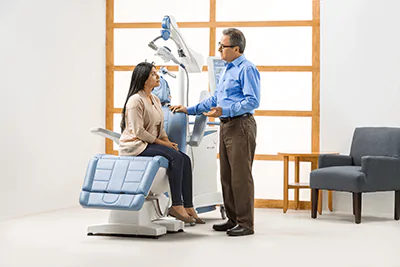Depression & Alcohol
What is Depression and What is the Harm in Combining Depression & Alcohol?
Depression is a very serious illness. It currently affects about 15 million people in the Unites States. Depression is much more than just feeling sad or having a bad week. It is a state of mind that leaves an affected person feeling so low and hopeless that their quality of life diminishes with time.
Each case of depression is different. It can stem from different roots, and manifests in different ways. There are chronic forms of depression like major depressive disorder (severe), dysthymia (mild to moderate), and situational depression related to life crises such as grief, loss, illness, or post-partum.
While it may manifest within and affect you in different ways, the symptoms of depression are often very similar and include anxiety, loss of appetite, sleep disturbance, crying spells, feelings of hopelessness, low self-esteem and negative self-image, and loss of interest in enjoyable activities.
How does depression affect you?
When you are depressed you struggle with staying positive. In other words, hopeful about your life and the world around you. You face many obstacles that stem from feelings of hopelessness. Perhaps even a low sense of self-worth. It is important to have a positive view of yourself and your life. When you lose that positive view you lose confidence in yourself to thrive and be happy.
You begin to feel hopeless about your goals and lifestyle. One might begin to experience a decline in motivation. You also become less interested in things you used to enjoy, like hobbies, work, and fun activities. Some people begin to withdraw from peers and loved ones. Your work performance can decline as a result of your lowered motivation. As you feel more stress and pressure weighing on you from the depressed mood.
Depression & Alcohol
People who suffer from depression struggle a great deal with understanding and balancing their emotions. Some may feel deep sadness and despondence. Others are not able to feel anything at all. Of course, nobody wants to be depressed. When you feel depressed you may be willing to try anything to feel anything besides the depression.
Alcohol has the reputation of helping people feel less depressed, less anxious, and more relaxed and peaceful. It makes sense that many people turn to alcohol when seeking relief. Some even seek out the dizzy, numbing effect, which is believed to lighten the “heavy blanket” feeling felt in a depressed person. However, despite its reputation alcohol actually will make depression worse in the long term. In turn, that leaves the user falling deeper into depression. Putting them at risk for developing alcohol addiction and dependence.
Alcohol and the Brain
Alcohol is a depressant. That means it is a drug that depresses the central nervous system. It effectively leaves the user with slower information processing, mood instability, lowered inhibitions, and poor awareness. As a result, it often results in severe mood swings. In turn, a higher potential for self-harm. These side effects are the result of alcohol unbalancing the brain’s supply of neurotransmitters.
For example, one type of neurotransmitter that is severely affected is gamma-amino butyric acid (GABA). GABA is responsible for regulating communication between the cells of the brain. It is very important because it prevents the cells from firing too many messages at once.
When alcohol is ingested it causes GABA to be active longer and more often, decreasing the information processed within the brain. The problem is that it results in less messages being transferred through the cells of the brain. In turn, lower the overall function of the brain and body. That leaves the user with the effects of being intoxicated like slurred speech, unusual behavior, memory loss, and poor information processing.
But that’s not all! Alcohol also affects dopamine. Dopamine is responsible for rewarding the body with a “feel good” sensation. Alcohol is considered a depressant because it consumes the supply of dopamine in the brain faster than it can be generated. In the end, this leaves the user in a severely depressed state as more and more alcohol is consumed.
When self-medicating their depression with alcohol, the user will wake up feeling more depressed than the night before. That’s because all of the dopamine in their brain has been used and has not been regenerated.
Seeking Help for Depression & Alcohol Abuse
An estimated 34% of cases with a depressive disorder also struggle with alcohol dependence. When people self-medicate depression with alcohol they are putting themselves at risk for serious side effects. This includes, suicidal thoughts, urges to harm themselves, and anxiety. Alcohol also takes a toll on the body. In turn, leaving the user at risk for seizures, liver and kidney problems, cardiovascular problems, and a poor immune system.
Fortunately, there are professional clinicians and doctors who understand depression. Professionals in the field of psychiatry have devoted countless hours into developing interventions for both depression and substance abuse. As a result our knowledge and understanding of these illnesses has grown exponentially. For example, there has been extensive research on the effectiveness of psychiatric medication. It has helped doctors prescribe antidepressants that target the neurotransmitters in your brain. They can help you with mood, sleep, energy and libido. With those things in check, you will feel more aware and less depressed, without the side effect of feeling like you are in a fog.
Therapy for Alcohol & Depression
There are also forms of therapy like talk therapy and cognitive behavioral therapy. These will help you understand your depression. You will learn ways to cope without having to use drugs or alcohol. Talk therapy has been found to be useful because it helps the patient reflect on their depression. This will help them reach the core of their issues and work through them in a way that helps the patient. Often, having someone listen and understand them can make all the difference.
Cognitive Behavioral Therapy (CBT) has been found to be particularly useful in treating both depression and co-occurring alcohol use disorders. Cognitive therapy helps the patient see the connection between their thoughts, behavior, and emotions. They will learn how it all contributes to the depression and alcohol use. CBT also provides the patient with cognitive reconstruction exercises. These exercises train the brain to look at upsetting situations in a balanced, realistic perspective.
Where to Start
Consulting a mental health professional is important if you suspect you may be struggling with depression, alcohol, or drugs. Mental health professionals have extensive knowledge, education, training, and experience. They can provide you with as many resources, tools, and coping strategies as you need. When you are depressed it is easy to feel hopeless. However, there are people who can help you feel better.
If you feel you may be suffering from depression and wish to seek help, a good first step would be to call any mental health professional. They can provide you with the therapy services you need to feel good again.
GinaMarie Guarino, LMHC
To help yourself or someone you care about to overcome their depression contact Nsight Mental Health & Wellness today. Call (949) 629-3730 today or contact Nsight via confidential email (info@nsightrecovery.com) to learn more.




Pingback: What is a Co-occurring Disorder or Dual Diagnosis? - Nsight Psychology
Pingback: 5 Misconceptions About Alcoholism - Nsight Mental Health & Wellness
Pingback: Understanding Feelings Video - Nsight Mental Health & Wellness
Pingback: Will I Always be Depressed - Nsight Mental Health & Wellness
Comments are closed.